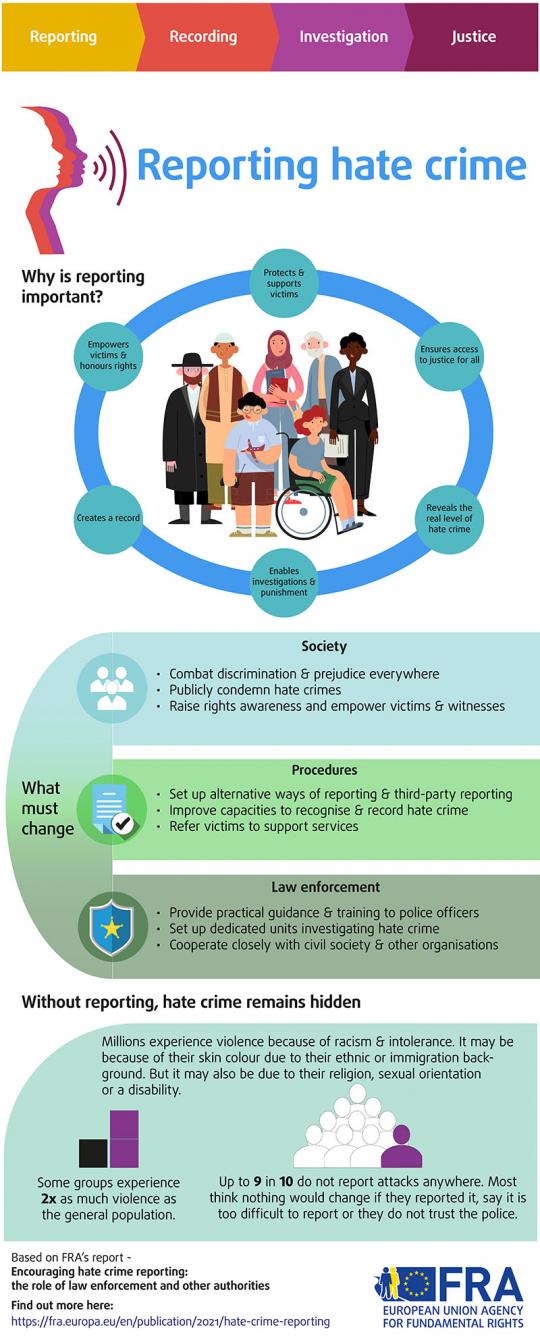Hate crime reporting infographic

Reporting Hate Crime
Reporting > Recording > Investigation > Justice
Why is reporting important?
Empowers victims & honours rights Protects & supports victims Ensures access to justice for all Creates a record Enables investigations & punishment
Reveals the real level of hate crime
What must change
Society
- Combat discrimination & prejudice everywhere
- Publicly condemn hate crimes
- Raise rights awareness & empower victims & witnesses
Procedures
- Set up alternative ways of reporting & third-party reporting
- Improve capacities to recognise & record hate crime
- Refer victims to support services
Law enforcement
- Provide practical guidance & training to police officers
- Set up dedicated units investigating hate crime
- Cooperate closely with civil society & other organisations
Without reporting, hate crime remains hidden
Many experience violence because of racism & intolerance. It may be because of their skin colour due to their ethnic or immigration background. But it may also be due their religion, sexual orientation or a disability.
Some groups experience 2x as much violence as the general population.
Up to 9 in 10 do not report attacks anywhere. Most think nothing would change if they reported it, say it is too difficult to report or they do not trust the police.
Based on FRA’s report – Encouraging hate crime reporting: the role of law enforcement and other authorities.